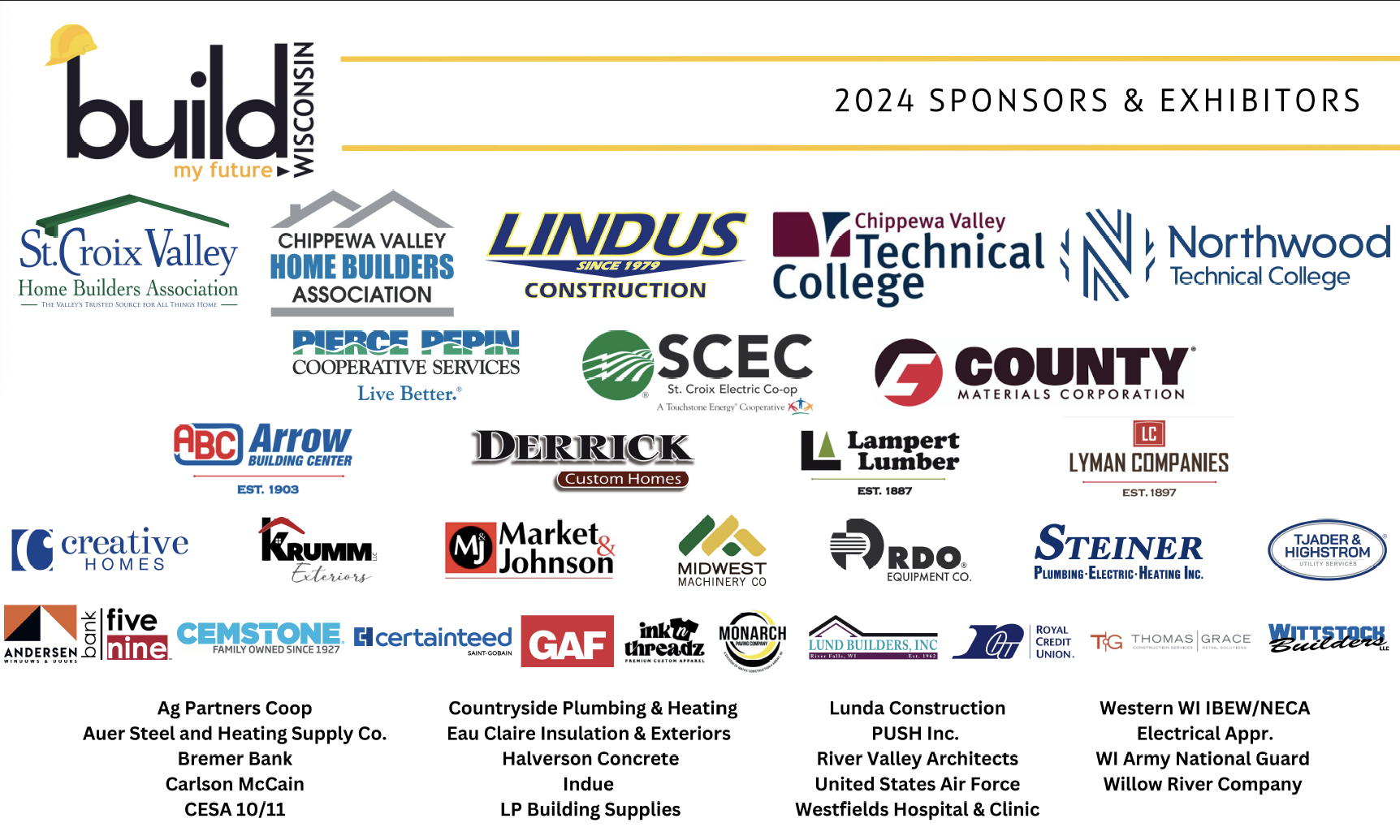Business Exhibitor and Sponsorship Opportunities
CLICK HERE TO SIGN UP!
Wednesday, October 1, 2025
SPONSOR & EXHIBITOR
A variety of sponsorships are available to allow businesses of all sizes to gain recognition and support the event. Business forms must be received by September 1, 2025, to be included on the back of student shirts. The exhibitor fee is $500 per booth (waived for sponsors). To register for the event as either a sponsor or an exhibitor please follow the link here, or above.
VOLUNTEER INFORMATION
Volunteers are essential to the success of Build My Future Wisconsin. Please email info@scvhba.com for more information about volunteer opportunities that will be available closer to the event.
We welcome businesses from all aspects of residential and commercial construction to participate as exhibitors, sponsors, and volunteers.
1. Design and Planning
Designing is the first stage in the construction process. During this stage, buildings are designed based on the site, location, soil type, and zoning types. Plan reviewers and inspectors make sure the plans meet state and local building codes.
2. Banking and Real Estate
Most building projects require financing, buying and selling property, appraisals, and marketing.
3. Excavation and Utilities
Even with the perfect site and location, the site still needs to be prepped. Considerations are made for rainwater and storm runoff as well as for utilities like electricity, gas, broadband, water, and sewer/septic.
4. Foundation and Footings
All construction starts with a good foundation, whether it’s a full foundation or a thickened slab. This profession has also expanded to decorative stamped and colored concrete options. In this section, you’ll learn how to lay blocks and finish freshly poured concrete.
5. Rough Framing
Most buildings in our region are wood frame construction. Learn the skills that carpenters use to frame up the floor systems, walls, and roof systems.
6. Building Envelope and Insulation
Insulation keeps our homes warm in the winter and cool in the summer, but there’s more to the building envelope than just insulation. The building envelope is a scientifically developed system that includes an air barrier (most people think of this as Tyvek), insulation, and a vapor barrier on the interior to prevent moisture from ruining the insulation and building materials. In this section, you’ll learn about the envelope and the many types of insulation: fiberglass batt, blown-in cellulose, spray foam, and rigid.
7. Mechanical Systems
Mechanical systems make our buildings liveable. This includes electricity, plumbing, heating, and air conditioning. In this section, you’ll learn what is involved with these mechanical systems and you’ll get to try hands-on skills like brazing, electrical wiring, etc.
8. Finishes
Typically, a building’s style and curb appeal are reflected in the finishes. It’s no surprise then that the choices that designers and owners make with their siding, roofing, paint, windows, and doors can greatly impact the appeal of a house or business.
9. Landscaping
Landscaping is the finishing touch that connects the house or building to the land. Landscaping involves planting, gradework, lighting, outdoor living spaces, and even water features.
10. Friends of Construction
There are a lot of people who maintain, supply and protect our buildings.


